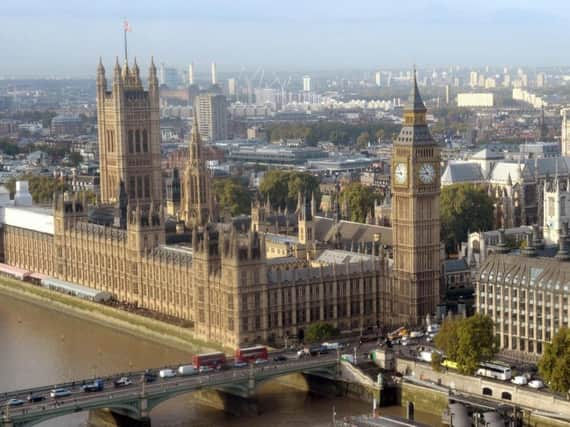Nick Quin: In the thick of it '“ why there's no case for cutting the number of MPs


Since then politicians have done everything they can to out-do him and make the Westminster world more and more absurd. Every day, it seems, a new story emerges about intrigue, infighting and incompetence.
Well now there is a new plan to reform politics. And it isn’t coming from one of the myriad new centrist parties, or from the ludicrous fringes of the political spectrum.
Advertisement
Hide AdAdvertisement
Hide AdInstead, it is a proposal from a seven-year-long politically neutral commission on political boundaries which has cost £10m: the Boundary Commission.
When the Boundary Commission was originally announced, it was part of the 2010 coalition deal between the Conservatives and Liberal Democrats.
The proposal was intended to correct anomalies in the electoral map and make the system fairer.
After all, some constituencies, like Hilary Benn’s in the centre of Leeds, have grown so much over time that they include double the number of electors than other seats.
Advertisement
Hide AdAdvertisement
Hide AdThe Boundary Commission is implementing the instructions it was given in 2011 by the then government. And the then government was obsessed with “cutting the cost of politics” because of the MPs’ expenses scandal two years previously.
Only this week has it reared its ugly head. But the problem is the proposals are now based on criteria which were designed to meet the specific needs of a government which has long since left office, leaving its successors with an almighty mess.
The challenges we face on the verge of Brexit are different to the challenges David Cameron and George Osborne planned for. And the solutions this suggests are past their sell-by date.
In 2018, I don’t think the Government should be cutting the cost of politics. I think it should be making politics more professional.
Advertisement
Hide AdAdvertisement
Hide AdIt should start with our MPs. Recent research has showed that members of the public are being priced out of standing to be MPs by the “huge personal cost” of being a party candidate, and suggested that we get the wrong politicians as a result – as not everyone can afford to stand for Parliament in the first place.
So let’s make sure that people who have the wherewithal to stand for Parliament can do so, whatever their means.
When they get there, MPs don’t have the basic rights most of us expect from a job.
Yes, they get a healthy salary, but they can forget the idea of things like maternity leave. That means new mothers have to be dragged in to vote at 10.30pm.
Advertisement
Hide AdAdvertisement
Hide AdSo we should get on with reforms to Parliament which makes it a more realistic place to work.
The next thing to consider is MPs’ teams.
Each MP is able to employ staff to help them respond to constituents, research issues and plan their days.
Those staff are usually found under a mountain of casework, working against absurd deadlines to finish off a speech or submit a case to the relevant authority.
It’s a privileged job, but with restricted budgets it is not a realistic career path for many. Most MPs’ assistants are young, and stay in the job for short periods of time. They keep the show on the road by working long hours, and then move on to somewhere else.
Advertisement
Hide AdAdvertisement
Hide AdThat means, however, that the end result isn’t always perfect, and that experienced staff are hard to come by. It means that MPs can’t always offer a first-class service to their constituents and that we rely on an unelected (and ever-growing) House of Lords to give laws proper scrutiny.
That has consequences for people’s faith in politics. Expectations are not met. Big decisions are not challenged. Well-resourced parties and politicians can divert attention away from the big issue into the minutiae of political gossip, by performing politics rather than practising policy.
We can change that, though. By creating the right conditions for people to stand for Parliament whatever their background. By introducing basic working conditions if they get there. And by creating a culture of professionalism around them rather than relying on overstretched, under-resourced staff.
I have had the privilege of working in Parliament and can confirm that all too often it is like The Thick of It. Except it’s not funny.
Advertisement
Hide AdAdvertisement
Hide AdLet’s forget the cost-cutting at the heart of this £10m exercise, and make politics more professional instead.
Nick Quin is a communications professional working in Leeds. He has previously worked at Parliament.